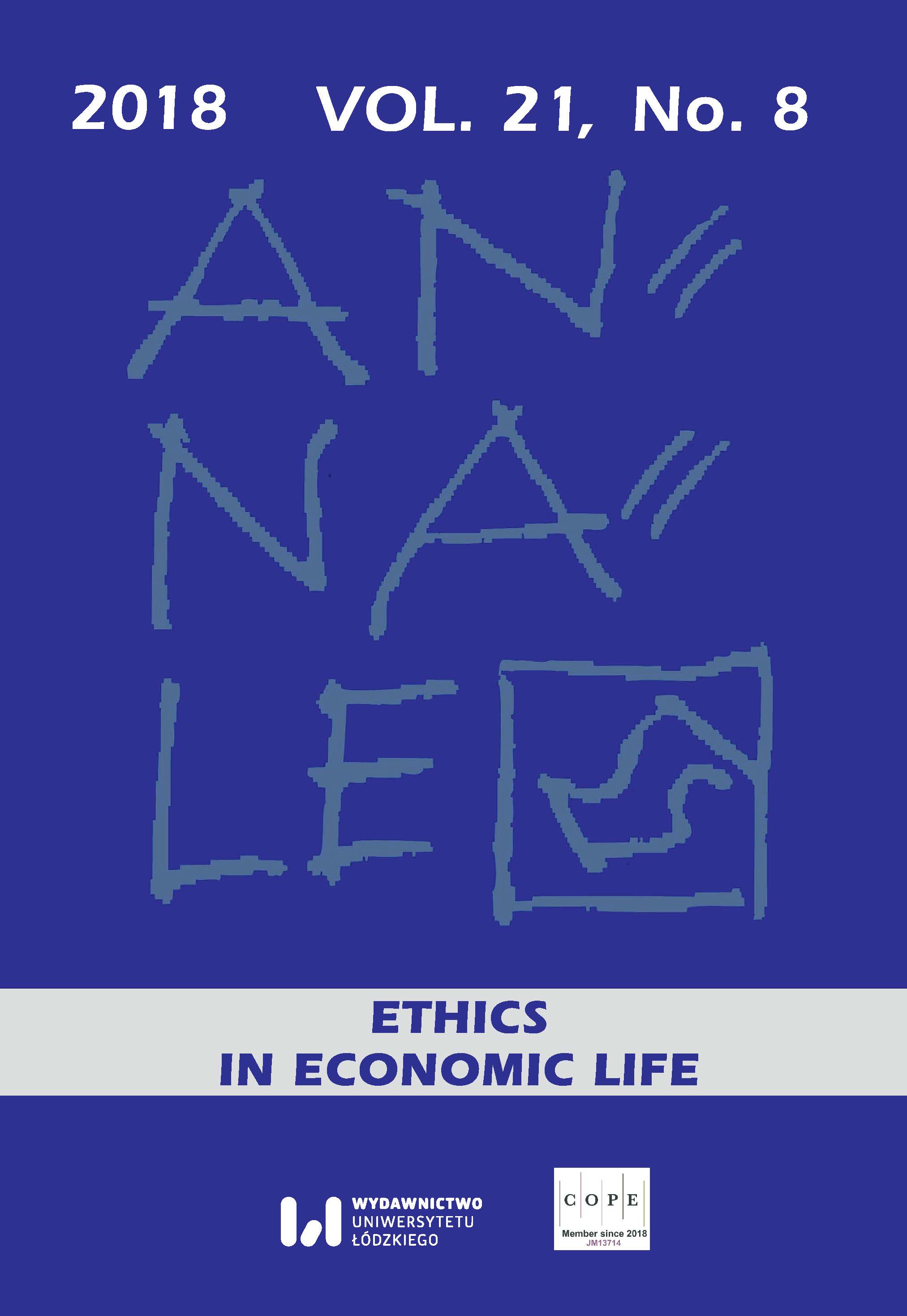Ethical issues in the early works of accounting
DOI:
https://doi.org/10.18778/1899-2226.21.8.01Keywords:
accounting, ethics, history of accountingAbstract
Accountants in Poland have recently had the opportunity to celebrate the 20th anniversary of the introduction of the Accounting Act. The act was passed by the Polish Parliament in 1994. 500 years earlier, a treaty on double-entry accounting system was published by Pacioli. The publishing of Tractatus XI. Particularis de computis et scripturis was a momentous event marking the beginning of a new field of economics. Double-entry accounting was in use since Cotrugli introduce it some thirty years before Pacioli published his work.
Recently, in accounting as well as in economics, emphasis has been put on ethics, moral values, and professional attitudes. It is worth considering whether, or to what extent, these were present in the early works of accountancy from 550 years ago and how accountants approached these matters at the beginning of the written history of accounting.
This article presents the main ideas included in the guidelines set by Pacioli and Cotrugli regarding double-entry systems and investigates if ethical guidelines were present there. It turns out that the author of an essential work in the history of accounting, as well as his predecessor, devoted much attention to the moral attitude of the merchant, their appropriate behaviour, their attitude towards customers, and their colleagues and competitors.
References
Banaszkiewicz, A. (2013). Techniki prowadzenia ksiąg rachunkowych w ujęciu historycznym. Copernican Journal of Finance & Accounting, 2(1), 21–37.
Google Scholar
Dobija, M. (2012). Ponadczasowe i cywilizacyjne znaczenie zapisu podwójnego. Management and Business Administration. Central Europe, 4(117), 3–22.
Google Scholar
Dobija, M. (n.d.). Ewolucja koncepcji rachunkowości, kapitału i pieniądza. http://janek.uek.krakow.pl/~zkrach/pobranie.htm
Google Scholar
Dobija, M., & Dobija, D. (n.d.). O naturze kapitału. http://janek.uek.krakow.pl/~zkrach/pobranie.htm
Google Scholar
Dobija. M., & Jędrzejczyk, M. (2011). Szkice z historii rachunkowości. Kraków: Polskie Towarzystwo Ekonomiczne.
Google Scholar
Garstka, M. (2015). Problematyka etyczna w pierwszych dziełach o rachunkowości. Annales. Ethics in Economic Life, 18(3), 73–83.
Google Scholar
Hońko, S. (2013). Luca Pacioli – prekursor dydaktyki w rachunkowości. Folia Pomeranae Universitatis Technologiae Stetinensis. Oeconomica, 303(72), 41–50.
Google Scholar
Mikuła-Bączek, E. (2006). Kapitał a kapitał ludzki w procesie kształtowania wymiaru globalizacji. In M. G. Woźniak (Ed.), Nierówności społeczne a wzrost gospodarczy. Problemy globalizacji i regionalizacji (Part 1, Issue 8, pp. 155–169). Rzeszów: Uniwersytet Rzeszowski.
Google Scholar
Niemczyk, L. (2010). Program badawczy Luca Paciolego. Gospodarka Narodowa, 9, 83–96.
Google Scholar
Pacioli, L. (2007). Traktat o rachunkowości. Warszawa: Stowarzyszenie Księgowych w Polsce.
Google Scholar
Pogodzińska-Mizdrak, E. (2007). Przedmowa. In L. Pacioli, Traktat o rachunkowości. Warszawa: Stowarzyszenie Księgowych w Polsce.
Google Scholar
Rogozina, S. (2012). Powstanie i rozwój księgowości podwójnej. Zeszyty Wyższej Szkoły Bankowej w Poznaniu, 32, 69–87.
Google Scholar
Turzyński, M. (2013). O średniowiecznej moralności kupieckiej i etyce zawodowej rachunkowości: perspektywa teorii społecznej Michela Foucaulta. Zeszyty Teoretyczne Rachunkowości, 73(129), 131–146.
Google Scholar
Ziętowska, I. (2014). Benedetto Cotrugli i pierwsze dzieło o teorii rachunkowości. Zeszyty Teoretyczne Rachunkowości, 79(135), 179–197.
Google Scholar
Downloads
Published
How to Cite
Issue
Section
License

This work is licensed under a Creative Commons Attribution-NonCommercial-NoDerivatives 4.0 International License.









